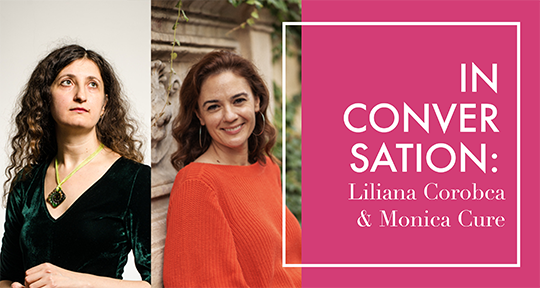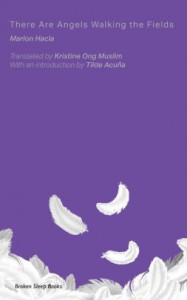After The Censor’s Notebook, winner of the Oxford-Weidenfeld Prize for debut translation, and Kinderland, about a village of children abandoned by parents working abroad, Too Great a Sky is Moldovan author Liliana Corobca’s third novel to be translated into English by Romanian-American translator and writer Monica Cure. Beginning with a harrowing deportation by train from Bucovina, Romania to the steppes of Kazakhstan, the story chronicles a girl and a people who are forced to find their way amid unspeakable conditions and political change. I spoke with Liliana and Monica about working between academic research and fiction; navigating culture and language across borders both contemporary and historic; and the ways in which faith, optimism, and humor are instrumental to survival.
Regan Mies (RM): Too Great a Sky opens with its narrator Ana telling her story to her great-granddaughter, beginning when she’s eleven and facing Soviet deportation from Bucovina. What was it like to write in the voice of a much older woman recalling experiences from her youth and adolescence?
Liliana Corobca (LC): My novel is based on the real testimonies of people from Bucovina deported to Siberia, and these were from survivors who were very old. My main character is not a real person, but because someone like her would have been deported in 1941, it wouldn’t be realistic to imagine a survivor as a young woman or child today. But my novel is also about memory, about remembering the experiences of past and childhood. During the journey on the train, Ana was a child—that’s why I move between ages. We have an old woman who tells the story, but we also have a young girl who feels the experience of deportation.
RM: In her translator’s note, Monica writes that you had previously edited over eighty of these oral testimonies of Soviet deportation during World War Two. What did the journey look like between working with those texts in an academic capacity and deciding to write this novel?
LC: At the time when I was editing the documents, I thought that documentation would be enough, and then I moved on. I decided not to write a novel. Almost ten years passed after that, but when I was working with those testimonies, I discovered certain themes. They said, like the refrain of a song, “We survived because we believed in God.” I was educated in a communist society, which wasn’t religious at all. For me, it was complicated to write from inside the skin of a believer. These people who believed so profoundly and seriously in God had a very religious way of speaking. Even if they weren’t mentioning God by name, he was still present in their stories. I was impressed that, in the worst conditions, their hope and faith allowed them to survive. I began to read religious literature, and I learned to pray. I also began reading orthodox prayer books. Even though it wasn’t very usual to read the same prayers over and over again every day, it was through that practice that I learned to say my own prayers, which was what I needed to be able to write this story in their voices.



